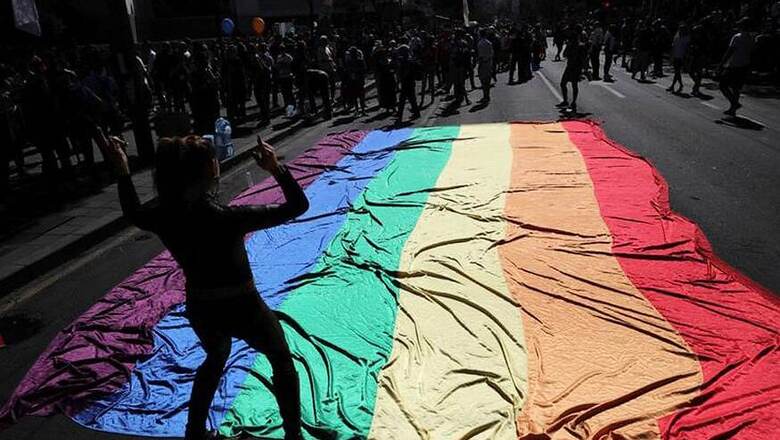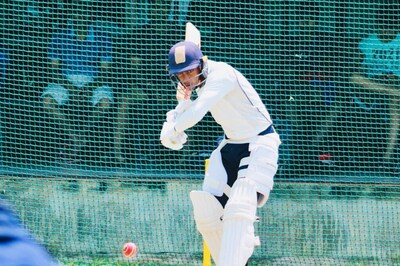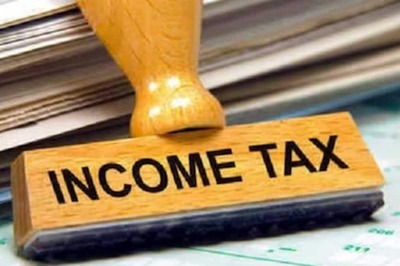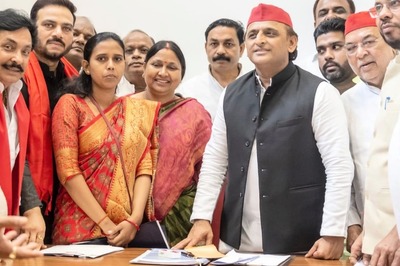
views
New Delhi: “If not now, then when?" is the mantra for hotelier Keshav Suri, scion of the late hotel magnate Lalit Suri and Executive Director of the Lalit Suri Hospitality Group that owns the LaLit chain of hotels.
Suri is referring to a fresh writ petition that he has filed with the Supreme Court this year in favour of decriminalising Section 377 of the Indian Penal Code.
On Tuesday, a five-judge constitution bench will hear a bunch of petitions that demand the scrapping of Section 377. On Monday, the court refused to adjourn the hearing despite Centre's plea for more time to file its response on the issue. The top court was asked to re-examine the issue after it set aside a Delhi High Court verdict of 2009 that held Section 377 as "unconstitutional".
A Supreme Court bench headed by Chief Justice Dipak Misra sent a notice to the Centre on April 23, regarding its stand on the issue.
Suri, who is elated and confident at the support his cause has been receiving, thinks it is high time India addresses the big, gay elephant in the room.
“The people who enforced this archaic law on us have long since apologised for the crimes committed against gay and LGBTQ people. Everywhere in the world, laws are recognising the rights of the LGBTQ. So many countries nowadays allow gay marriages and even adoption. If Germany, France, Australia and parts of US can, why can’t we?" the 33-year-old asked.
Suri, who has openly admitted to being in a relationship with his partner of almost a decade, has been a champion of the LGBTQ community for some years now through initiatives like introducing gender inclusive and protectionist policies at his organisation, organising LGBTQ events and extending support to the community through various initiatives like such as the 'Pure Love Campaign'.
“But I was done being on the sidelines. It’s time for the LGBTQ community to come forward and demand their rights. Section 377 is problematic as it prevents us from enjoying some of the basic dignities that are allowed to other people," Suri told News18.
IDENTITY, NOT PERVERSION
Section 377 prohibits ‘unnatural sex’ or carnal intercourse against the order of nature. It is a colonial-era law (1861) that prohibits non-penovaginal intercourse and makes it a punishable offence that can earn the accused up to ten years in prison.
“The law has historically been used as a tool to repress and discriminate against individuals — be it man, woman or trans person," said Yashwinder Singh, Project Manager at Humsafar Trust, one of the oldest LGBTQ advocacy forums in India.
Commenting on the tricky wording of the law, Singh clarifies that though it does not directly discriminate against the LGBTQ community by name, it creates an atmosphere of shame and lack of dignity for the community.
“By singling it out as just an act of sexual perversion, Section 377 tries to deride the identity of anyone who belongs to an alternate sexual identity. Homosexuality or alternate sexual identity is not just limited to the kind of sex we can or cannot have. It is who we are, who we love, how we love, how we want to live and who with," Singh said emphatically, adding that the law was unconstitutional and simply homophobic.
TRIVIALISING MALE RAPE
While recent cases of brutal rape and murder against women and children in India have catapulted the issue of sexual crimes against women to the forefront of public discussion, with a growing consensus for stricter sentences against the perpetrators, there continues to be a vacuum in the discourse when it comes to the rape and sexual assault of men.
“It is surprising but there is not a single law in India that deals with male rape. When a man has to complain about sexual crimes committed by another man or even woman, there are no specific legal provisions that he can take recourse to," said Mumbai-based advocate Suraj Sanap, who works as a legal officer with Lawyers Collective.
Sanap, who has handled various Section 377 cases told News18 that the law limits the right of men, both homosexual and straight, to seek legal remedy against sexual crimes.
“Due to the secretive nature of dating in the LGBTQ community, those who participate are often victims of sexual violence, what we call ‘date rape’. Because of Section 377, many don’t report the crime for fear of getting arrested themselves. And if not arrest, the ridicule is enough to keep many out of police stations," Sanap said adding that all cases of consensual sex between men and also of sexual assault against men, homosexual or not, were treated under Section 377.
NO COUNTRY FOR LGBTQ
Because of criminalisation and the ensuing stigma against homosexuality, those belonging to LGBTQ are often denied professional opportunities and face workplace discrimination.
“It is not uncommon for LGBTQ to not be considered for jobs, outrightly being rejected because of our sexual preference, or dismissed and made into a joke at the workplace. If I met you today, I would probably pretend to be a straight man as I would not want your opinion of me being coloured by my sexual preference because I’m afraid you may get me arrested," Humsafar Trust's Yashwinder Singh said.
Keshav Suri agreed. According to the hotelier, the socio-economic backlash of Section 377 was hard to ignore, especially when it comes to LGBTQ members navigating the corporate sector.
“56% of white-collar workers in India complain of homophobic discrimination. Insurance companies often do not want to ensure gay couples. Job and pay gap is very prevalent," Suri told News18.
FINANCIAL LACUNAE
A resource guide titled ‘Creating Inclusive Workplaces for LGBT Employees in India’, created by Google, IBM, Goldman Sachs and Community Business last year, records that the LGBTQ community makes up about 5-10 percent of India Inc's workforce. Around 80 percent of them report discrimination in the form of homophobic comments, gestures, actions or even physical threats and violence.
Homophobic discrimination hurts not only the LGBTQ community but also the market and economy of the country they are in. India loses between 0.1-1.7 percent of its GDP because LGBTQ members are not given equal job opportunities or equal pay, Suri told News18.
He was a quoting a World Bank study that also elaborates on how depression caused due to homophobia leads to lower output and productivity among LGBTQ workers.
India is also missing out on what is internationally known as ‘Pink Money’, a reference to the reported ‘purchasing power’ of gay men and also the thriving industry for LGBTQ products, services and merchandise. According to a report in Bloomberg, the American LGBTQ community had a purchasing power of a whopping $917 billion in the year 2015.
“Many multinational companies, that have various diversity an inclusion policies and campaigns at an international level, don’t follow them through in India because of this prejudice and law. We are missing out on so much business at the cost of our LGBTQ members who continue to suffer despite their ability. All of this because Section 377 criminalises ‘unnatural sex’ and people can get away with exploiting it," said Suri, adding that he too had initially faced resistance when he tried to introduce more gender-inclusive policies in his organisation.
A DIFFICULT FUTURE
Suri and many others feel that it is time the discussion around 377 was reopened and finally brought to closure, especially in view of the recent judgment that made ‘right to privacy’ a fundamental right.
The entrepreneur and activist asserted that it is time that people like him from the LGBTQ community or otherwise, who have the privilege and power to affect change at the ground level, should come out and start negotiating with the status quo.
“Decriminalising 377 is just the first step. But what after decriminalisation of 377? Will it increase the space for the LGBTQ community in Indian intellectual, professional and political spaces? Will there be more recognition or acceptance of homosexuality and queerness? Those are the questions we need to start asking now," Suri said.




















Comments
0 comment